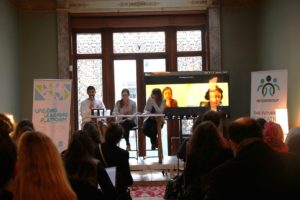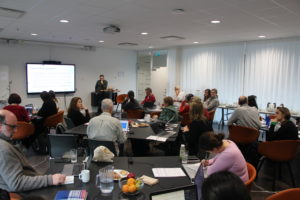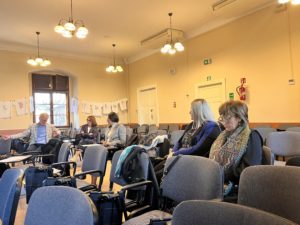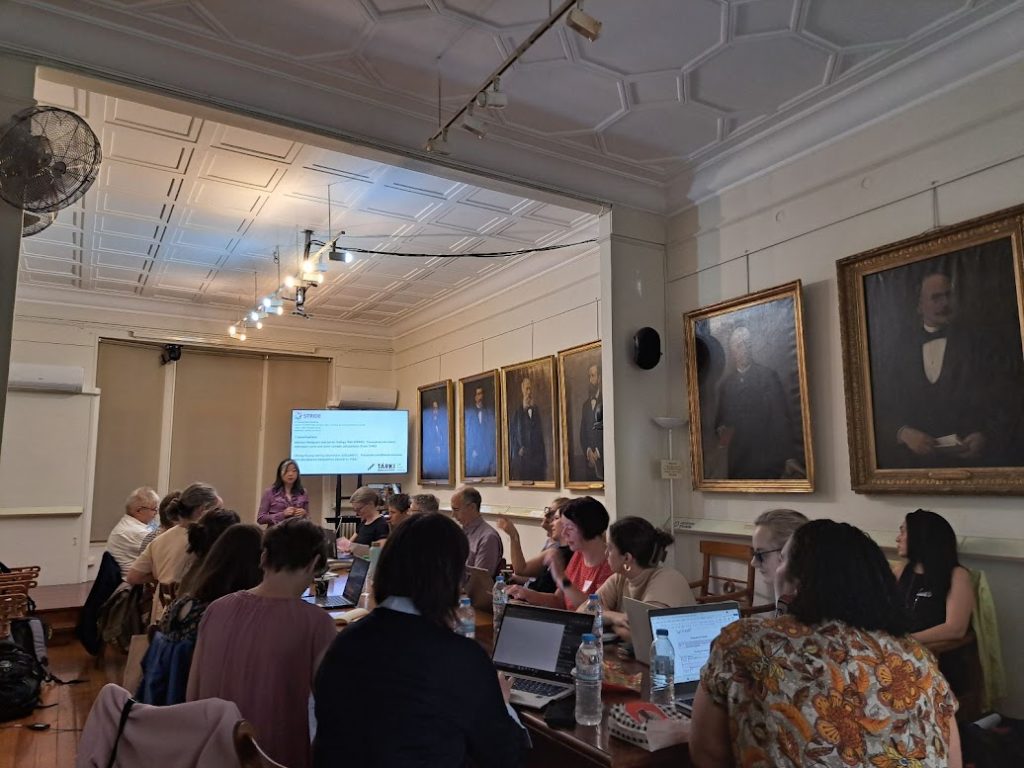As part of our mission to identify key factors in policymaking and effective techniques for monitoring inequalities in education, our partners from the University of Roehampton have conducted in-depth qualitative interviews with policymakers. Led by Professor Bryony Hoskins, Postdoctoral Researcher Khuyen Dinh, and Research Assistant Sofia Ferrer, these interviews took place throughout March 2025 with individuals pivotal to the development and dissemination of Sure Start in England.
The methodology of STRIDE
STRIDE research emphasises that effective solutions for societal problems require collaboration among various agencies and actors, as well as coordination among different policy areas. The success or failure of a policy often depends on the supportive or impeding impacts of other policies. Our comprehensive research considers the combined outcomes of economic, social, and environmental policies and laws that influence educational inequalities, like Sure Start. We focus on the sectors and actors involved, the instruments and procedures that influence their behavior, and the causal relationships between education and other policy domains. This research will outline the institutions and actors involved in the policymaking process, highlighting their roles in the design and implementation of educational policy.
Sure Start
Sure Start is the British Government’s flagship strategy aimed at tackling child poverty and social exclusion, thereby breaking patterns of disadvantage that can diminish life chances and lead to long-term societal issues. Launched in 1999, Sure Start represents a significant financial investment designed to benefit children, parents, and communities by increasing the availability of childcare, improving young children’s health and emotional development, and supporting parents in both parenting skills and employment. This initiative focuses on developing services in disadvantaged areas and providing financial assistance to make childcare affordable. Community control, exercised through local partnerships, is a core principle, with flexibility in service provision but clear goals to achieve. Local programs are expected to offer core services such as outreach, home visiting, quality play and learning opportunities, childcare, child and family healthcare, and support for special needs. Sure Start has also collaborated with other anti-poverty programs, such as the Neighbourhood Nursery Initiative, creating over 11,000 new nurseries in poorer areas within three years.
The interviews
For the STRIDE Project, we have critically examined Sure Start and conducted interviews with key figures such as Naomi Eisenstadt, the first Director of Sure Start, Dr. Edward Melhuish, the Executive Director of the National Evaluation of Sure Start, and Baroness Beverley Hughes, the Minister for Children, Families, and Young People during a crucial period of Sure Start. Our interviews have taken us to parliament, providing an inside look at the daily lives of politicians, and into the minds of those critically involved in Sure Start. Each interviewee has offered invaluable perspectives on policymaking for young children, the obstacles they have faced, data inconsistencies, and ideas for future improvements. We believe that including these interviews in the STRIDE Project will significantly enhance the project’s novelty and its impact on early childhood education.












